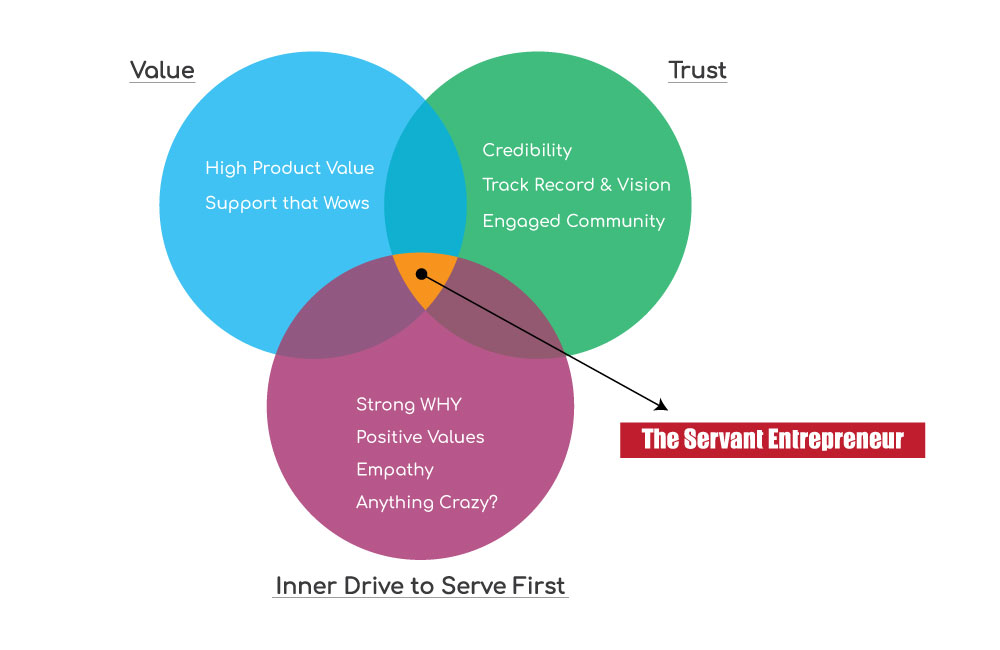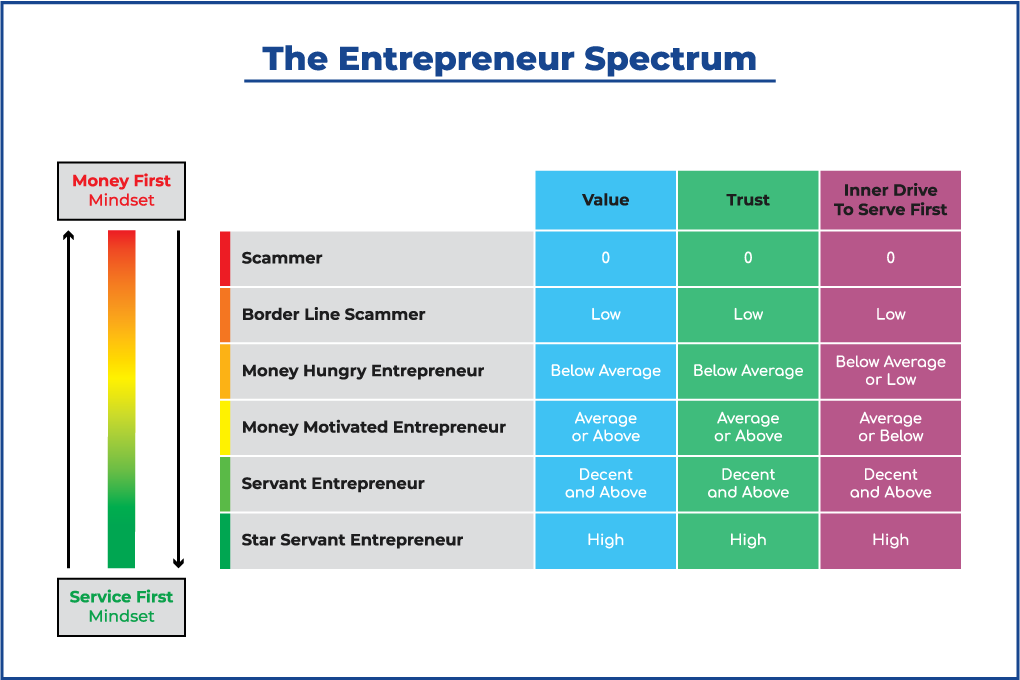A friend of mine, who I will hypothetically call Joe, was looking for easy ways to make money online fast. Unfortunately, he soon discovered that the quest for easy and fast money leads to disappointment and frustration. Jane, on the other hand, had a more pleasant experience buying a "make money online" course. So what did Jane do that Joe didn't?
The "Easy Ways of Making Money Online Fast" Trap
After months researching easy ways to make money online fast and trying several methods, Joe came across a seemingly amazing product that would allow him to do just that. The sales page of the product mentioned that he could start making money in just one day. Basically, all he had to do was to apply a secret 5 minute ‘copy and paste’ hack that makes it super simple for any beginner to make money online fast.

Screenshots of proof of earnings and convincing testimonials were also displayed to prove that the hack was legit.
The Excitement
Everything on the sales page indicated that this was a life changing opportunity. As a result, it made total sense to get that offer before the 90% discounted price went back up to the normal price. On top of that the vendor was offering 12 bonuses, worth something like $4997, for free!
Joe was getting all of that for a bargain price of only $12.97! Simply unbelievable!
Surely, nothing could go wrong with the 30 days "Ironclad" money back guarantee that the vendor was offering. All in all, this was an offer he simply could not miss. The previous products he tried did not work but this one seemed like the right one.
Furthermore, the product was heavily discounted for a very limited time. There was only a few hours left on the timer displayed on the sales page. So, Joe had to get that product on the spot...which he did. He took out his credit card and bought the product.
All excited, in his head Joe was like: “Yeah baby...Now I am going to make a ton of MOOLAH!”. He was already picturing himself on the beach sipping Pina Coladas as well.
The Frustration
A week had passed and there was no sign of any moolah. Not only was Joe not making any money but, the product was not what he was made to believe it would be.
At this point, he realized that the sales page was over-hyped with unrealistic expectations. It was not a 5 minute copy and paste trick. The bonuses were crap and did not provide any value.
Clearly, he was not going to see any money within 24 hours with that method, or anytime soon, for that matter. As a result, he felt deceived and was frustrated.
Obviously, he wanted to have a refund and submitted a ticket on the vendor’s help desk. However, he still hadn’t received any reply after several days. He thus tried every other contact method, but he could not get through to the seller or a representative.
Consequently, this only increased his frustration. He has just lost money and precious time...again.
The harsh reality is that the internet is littered with such products and unscrupulous entrepreneurs.

How To Avoid The Trap
Here is the story of Jane who had a completely opposite experience. Jane bought a course on “how to build a sustainable online business” from a reputable entrepreneur who has been building and promoting his brand for several years.
She did her due diligence and researched the vendor and product. It was important for her to find authentic reviews from real people on an independent review platform. Her research showed that a high percentage of people who bought the product were satisfied with their purchase and the support they got.
Work: The Alternative To "Easy Ways of Making Money Online Fast"
Moreover, the vendor was honest and transparent in his communication. One of the very first things that was highlighted out, was the importance of taking action and putting in the work.
Concurrently, she was made aware that making money online is not easy. She had to take her online business seriously to have any chance of success. Additionally, she had to consistently put in the effort and have a long term perspective.
In light of what she found out, Jane was happy to pay $147 to enroll on the course. She was pleasantly surprised by the level of attention she received from the instructor. And what's more, the latter was easily reachable and genuinely wanted to help her. She evidently felt comfortable asking any questions she had.
Jane was also invited to join a community of people, who shared similar interests as hers. She could tell that they were all raving fans of the brand and of the entrepreneur.
They somehow demonstrated the same values as the entrepreneur and were all very helpful. As a result, she could communicate with them with ease. As a matter of fact, she felt comfortable sharing her experiences and asking other community members for advice.
All in all, Jane felt that this was money well spent!

A Better Question to Ask
The cases described above can be classified as two extremes. In the first case, Joe is utterly disappointed with the product he purchased whereas in the second one, Jane was delighted with her purchase.
You could argue that Joe did not do his due diligence. He impulsively bought something without properly researching the vendor and his/her product. Like Jane, he should have looked for some product reviews. This is what most people would do.
Now, the problem with most product reviews is that a lot of the people doing product reviews will normally earn a commission from the sale of that product. So, in order to earn that commission, these people either
- do their reviews based mostly on what is on the sales page, without actually using the product; or
- praise and promote the product, despite knowing that it is a low quality product (basically, they lie).
Consequently, this makes the reviews biased and not very trustworthy.
A better question to ask, which not many people do, is:
Can I trust the entrepreneur behind the product?
Asking this question will make you think about the integrity of the entrepreneur, his track record, his experience and reputation...whether he is a Servant Entrepreneur.
Service vs Profit
Before we define who a servant entrepreneur is, let us first have a look at who an entrepreneur is. However, I am going to neglect social entrepreneurs and consider only commercial entrepreneurs.
An entrepreneur is an individual who sets up a business to solve the problem(s) of a defined group of people with the aim of making a profit.
How you classify an entrepreneur depends on what his intention is. Is he more interested in profit and making money or in solving the problems of his target market?
Therefore, where an entrepreneur lies on the spectrum depends on the importance he places on service versus profit. This can be assessed by asking the following three simple questions:
- Is the vendor providing real value?
- Does he elicit trust?
- Is he driven by a desire to serve first?
To be a servant entrepreneur, the answers to all three questions need to be an astounding YES!

Value
The entrepreneur provides value by providing
- quality products offered at a price that justifies the results they deliver;
- easily accessible and responsive support.
In a nutshell, the entrepreneur helps the ones he serves to close the gap to their desired state, which ultimately delivers a feeling of satisfaction. The product is thus perceived as being valuable.
"Value is a feeling, not a calculation. It is a perception."
Simon Sinek
Product Value
In general, for a product or service to provide real value, it needs to deliver on the promises made by the entrepreneur and actually solve the problem of the people purchasing it. Here are things we should look for when assessing the value of the product:
- Availability of a free trial or demo of the product or service
- The price of the product or service relative to the claims made on the sales page. If it seems too good to be true, it probably is.
Now, I am not saying that all low priced or free offers don’t have value. I have very often come across free content that has more value than paid ones. Very often, marketers will offer extremely valuable products or content for free so that you can have a taste of what to expect. This is a simple and absolutely legit marketing practice.
The key question to ask is: why is the product free or low priced? What is the intention of the entrepreneur? Don’t forget that price is an indication of value. Also, try to compare the price with those of competing products.
On the other hand, there may be instances where a product or product feature, which is available for free from more established brands, is being charged for a fee by shady entrepreneurs. - Money back guarantee or refund policy - look into how easy it is to have a refund. Has it been a struggle for buyers who have opted for a return to get their money back?
- Are verifiable testimonials of past buyers from third parties, such as Trust Pilot, Google, Facebook, available?
Support
Support can take the form of information or guidance for using the product or service, or otherwise, that will help the target customers solve their problem(s). Here are a few things you can check
- Is there a working contact us link or form on the vendor’s website?
- Is there an elaborate FAQ section?
- Does the vendor have a blog or YouTube channel where he shares valuable information?
- Does the vendor have a presence on one or more social media platform? For example, does he have a Facebook page or group? Try to see how supportive he is to his existing clients.
Trust

To evaluate the trustworthiness of a vendor, we can assess his:
1. Credibility
This can be done by analyzing his sales page to determine if his product has been hyped up. Here is a list of factors that we want to look into:
- Authenticity - does he use luxury items to get attention?
- Makes use of illusions - Does he use some imaginative ideal future state to make you emotionally excited? For example, imagine having the dream lifestyle, firing your boss, escape the 9-5 rat race, owning that dream car, etc.
- Honesty - Is he honest or is he trying to deceive people? To determine this try to find answers to the following questions:
- Does he guarantee results?
- Does he use fake countdowns?
- Are there legal pages on his website or sales page? If there are, do they look dubious?
- Is he using screenshots of profit or revenue that cannot be associated with the product he is promoting?
- Does he use fake testimonials? Or testimonials of people in their circle of influence?
- How realistic are his claims? E.g. make money in five minutes, a never seen before method, simple secret trick.
2. Track record and vision
A servant entrepreneur has a long term focus with regards to:
- Working towards achieving his defined purpose
- Building a relationship with the ones he serves - normally done by building a strong brand
- Developing his expertise - he wants to get better in order to serve better
- Profitability
Here are questions to ask when assessing the track record of an entrepreneur:
- What is his story? What has happened in his life that made him choose to serve that defined group of people?
- Does he have a mission statement or statement of purpose?
- Are his actions, products or services, values and communications congruent with that statement?
- Does he have a strong brand which he keeps on building?
- Does he have complementary products or services that increase the value provided to target customers? Or does he launch the same or similar products several times?
3. Community
Servant Entrepreneurs have raving fans. The term “raving fan” was coined by Ken Blanchard in his book titled Raving Fans: A Revolutionary Approach To Customer Service, to describe a customer who has been so well served that they are delighted and become emotionally attracted to the brand or the entrepreneur. As a result, they become loyal customers obsessed with everything related to the brand.
A servant entrepreneur will have a community of engaged followers and raving fans who support his purpose or mission, share his values and talk about him or his brand. In essence, they are a great source of “word of mouth” marketing.
The entrepreneur (or his brand) will, most probably, have an active presence on social media and a group where he interacts with his community. For example, a Facebook group.
Inner Drive To Serve First

The servant entrepreneur’s inner drive to serve first is perceptible from
- an inspiring mission statement or statement of purpose which is defined in terms of how and who the entrepreneur serves. He has faith in his purpose; faith that his purpose is righteous; faith that living his purpose will make the lives of the ones he serves better. This faith he has is noticeable and reinforced through his actions. Moreover, this faith lights up others who relate to him and believe in his purpose.
- the values that he lives by. For example, honesty, transparency, being of service, reliability, respect, integrity, humility, etc.
- the level of empathy he demonstrate towards the people he serves. He understands that his target audience is not merely a number or a metric he needs to improve. Above all, an audience consists of living and breathing human beings with dreams, desires and goals who need to be cared for.
- his willingness to go out of his way to do some exceptional and crazy things to serve his customers and/or strengthen the relationship with them.
The Entrepreneur Spectrum
The table below summarizes the different types of entrepreneurs and how each rates with regards to value they provide, trust they elicit and their inner drive to serve first.

On one extreme of the spectrum, you have the scammer and on the other you have the star servant entrepreneur. One important thing to note is that these categories in no way represent the endless variety of entrepreneurs that exist in the entrepreneur spectrum. Because each individual is different, each entrepreneur is going to be different.
I have only attempted to regroup the most common types of entrepreneurs under these 6 categories based on their primary intention: making money first vs serving first.
Hence two entrepreneurs in the same category are still going to be marginally different in terms of the value they provide, trust that they elicit and their inner drive to serve first.
The ultimate goal is to help people in doing their own due diligence and not make a purchase decision solely based on product reviews by bloggers or YouTubers, which, as we have seen, are very often are biased.
The Scammer
A scammer is not really an entrepreneur because he doesn't even have or attempt to provide a solution. For the most part, he is a dishonest person who deceives people, making them believe that he has the ideal product or service. He disappears once he has your money. On the whole, what he does is plain illegal.
The Borderline Scammer
The product or service that is offered by the borderline scammer has no, or barely any value. It is used only for the sake of having something for a transaction to take place. All things considered, he elicits an extremely low level of trust and has barely any inner drive to serve first.
The Money Hungry Entrepreneur
The money hungry entrepreneur provides products or services with some value but it’s definitely not decent or high quality. However, he will make unrealistic claims and hype his sales pages to make you think so. He may also use fake testimonials and screenshots of result claims, such as revenue, profits or commissions. In some cases, they will make use of bogus scarcity tactics, such as fake countdown timers, as well.
The money hungry entrepreneur doesn’t have any purpose other than to make money. He will sell the product for some time, discontinue it, and then relaunch the same or a similar product under another name. Overall, he has poor credibility and track record, no active community and he plays the short term game.
As, you may have guessed out, most of the vendors selling the "easy ways to make money online fast" products fall in this category.
The Money Motivated Entrepreneur
The products or services offered by the money motivated entrepreneur can actually be quite decent. As a matter of fact, he may even elicit average or above average levels of trust. However, where he really lacks is his inner drive to serve first.
His primary objective is still to make money. For this reason, he will offer basic customer service but will not go out of his way to serve his customers. He sees customers as a source of revenue and a metric he needs to improve. For him, it’s a numbers game.
The Servant Entrepreneur
In his 1970 essay titled “The Servant as Leader”, Robert Greenleaf provided quite a succinct and profound definition of who a servant leader is: “The servant leader is a servant first”.
Similarly, I would say that the servant entrepreneur is a servant first. His highest priority is making sure that the problem(s) of the people he serves are being solved, that they are getting what they need to close the gap between where they are and where they want to be. He is selfless and puts the needs and desires of the ones he serves before his own. He understands that it’s not about him but about them.
Now, this does not mean that he does not care about profit. Profit is, by and large, crucial for the survival of any business. What it really means, is that profit does not come before the needs of the people he serves. He understands and believes that money is merely a by-product of providing value to the ones he serves.
In short, the servant entrepreneur offers high value products, elicits trust and has an inner drive to serve first.
The Star Servant Entrepreneur
The major difference between the servant entrepreneur and the star servant entrepreneur lies in the extent they go to provide service. They both want to serve first but the star servant entrepreneur will go to extremes and sometimes do crazy things to provide service or to strengthen the relationship with the ones he serves.
He has a strong brand and always provides high value products. Despite the fact that he is an expert at what he does, he still seeks to improve in order to serve better. He is markedly credible, has a solid reputation, an undeniable track record and a horde of raving fans. Another key point is that he genuinely cares about the ones he serves. In essence, he plays the long term game.
The star servant entrepreneur is generally happier, proud of what he does and financially successful.
Conclusion
People who are looking for easy ways to make money online fast are the ideal prey for borderline scammers and money hungry entrepreneurs. These shady vendors know how such people think, what they want to hear and, consequently, which buttons to press to get into their heads.
They hype up their sales pages and, in some cases, won’t hesitate to lie to make people believe that they are getting a life changing product that will make their dreams come true overnight, and what's more, at a bargain price. People often find out too late that they've been misled and ripped off after purchasing a crappy product.
To sum up, the Internet can be a dangerous place, especially when you are a beginner trying to find your way around. As we have seen, you need to do your own due diligence when considering buying a "make money online" product because you cannot trust every review under the sun.
Fortunately, it is not all doom and gloom. There are also the good guys online: the servant entrepreneurs! They are the ones who you can trust. However, the tricky part is to be able to identify them.
It is one of my goals to help you identify servant entrepreneurs who genuinely want to support you in your "make money online" journey. That is why I have provided you with a simple framework to determine if a vendor is a servant entrepreneur or not.
Based on this framework, I have also created a tool to help you do your due diligence and avoid wasting your hard earned money on worthless products. I've called this tool The Servant Entrepreneur-O-Meter, and you can access it for FREE by clicking here.


Hi there,
What a wonderfully detailed article. You gave me much to think about.
I very much agree with all your points and wish servant entrepreneurs were more plentiful.
But they are out there if you look hard enough, lol.
Blessings,
Suzanne
Hi Suzanne.
Thank you so much for leaving a comment and for the blessings. You cannot image how much it means!
I am so happy that you enjoyed the article.
Cheers
Sanjeev
Wow what a great article. I love the two extreme examples you gave. The servant
entrepreneur is what is most needed in this world.
Hi Kerie!
Thank you for the comment.
I am actually on a mission to help solopreneurs grow their online businesses by becoming servant entrepreneurs.
Cheers
Sanjeev